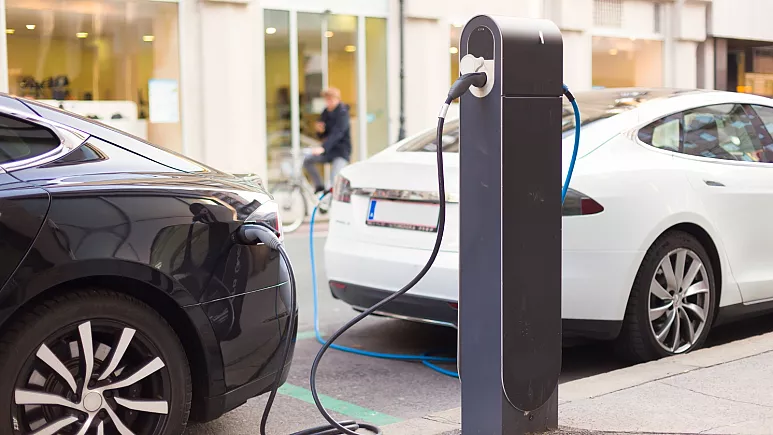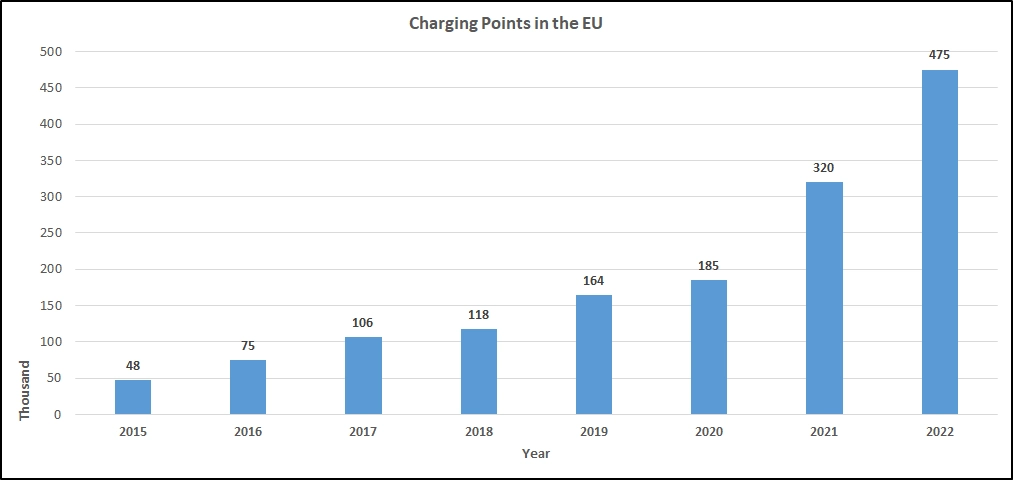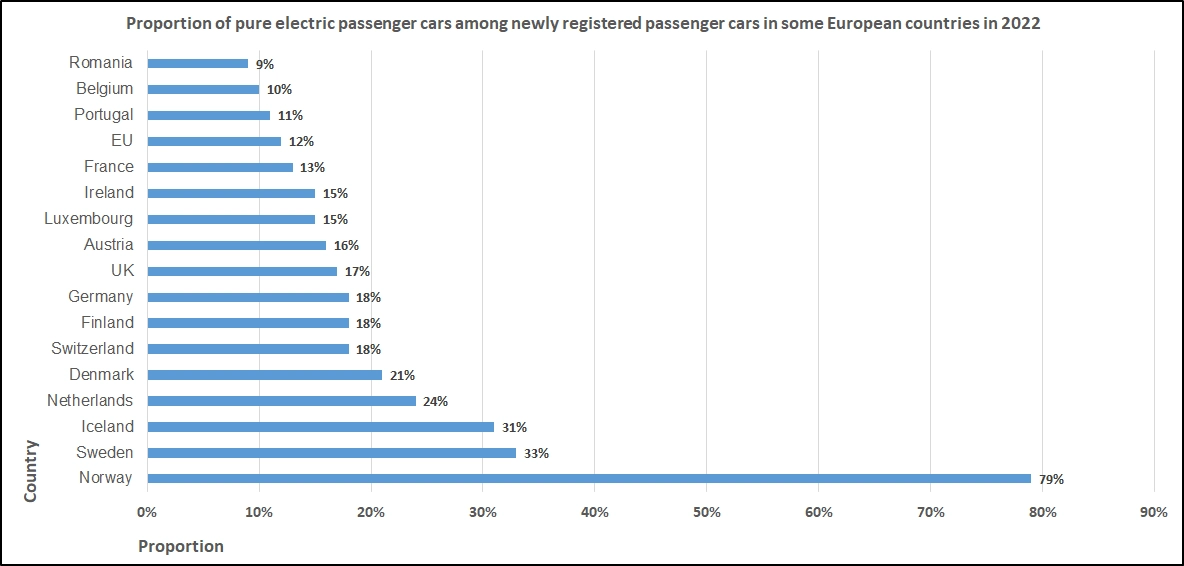HOSTON ENERGY
1, November, 2023
Electric Cars Surge in EU
Electric vehicles (BEVs) are becoming increasingly popular in Europe. In 2022, the number of electric vehicles in the EU will increase by 58% compared with 2021 – from 1.9 million to 3.1 million.
That number soared by more than 400% between 2019 and 2022.
While electric vehicles will be key to decarbonizing the transport sector, more charging infrastructure is needed to encourage use.
A report from the Organization for Economic Co-operation and Development (OECD) highlights that “the spread of charging is a major issue”.
Where to Charging Electric Cars?
According to an OECD interview survey, one-third of respondents in six European countries (France, the United Kingdom, Switzerland, Belgium, Sweden and the Netherlands) said there are no electric vehicle charging stations within 3 kilometers of their homes.
On the other hand, 24% of the respondents said they did not know whether there were charging stations near their homes.
Only one in four people said there was a charging point at home, work or in a car park, and a further 18% said there was an EV charging point within 3km of their home.
EU Charging Infrastructure Develops Rapidly
The extent of public charging infrastructure is critical to promoting the uptake of electric cars. According to ChargeUp Europe, the deployment of charging infrastructure in the EU has accelerated significantly in recent years.
In 2022, the number of public charging points in the EU will increase by 48% compared with 2021, from 320,000 to 475,000. Between 2022 and 2022, it increased by more than 150%.
ChargeUp Europe said that charging at the workplace is currently the most popular way to charge electric cars.
Convenient and cheap charging is important to encourage people in residential areas (apartments) to buy electric vehicles.
Because electric vehicles are parked for longer periods of time during the day and cheaper electricity prices, the workplace is an ideal place to recharge.
The OECD report said the EU should publish current and future deployment of charging facilities.
This could help raise public awareness and help families consider purchasing electric vehicles in the future.
EU Electric Cars Sales
The share of newly registered cars that are fully electric is an important indicator of progress towards zero emissions.
By 2022, 12.1% of all newly registered cars in the EU will be fully electric, according to ACEA.
Norway is an exception, with four out of five (79%) of all new car registrations being fully electric.
Norway is followed by neighboring Sweden (33%), then Iceland (31%), the Netherlands (24%), Denmark (21%) and Finland (18%).
Today, the demand for electric vehicle charging in Europe is still expanding, and investing in charging stations will be a wise choice.
Contact us to find electric cars chargers and seize opportunities in the European market.




